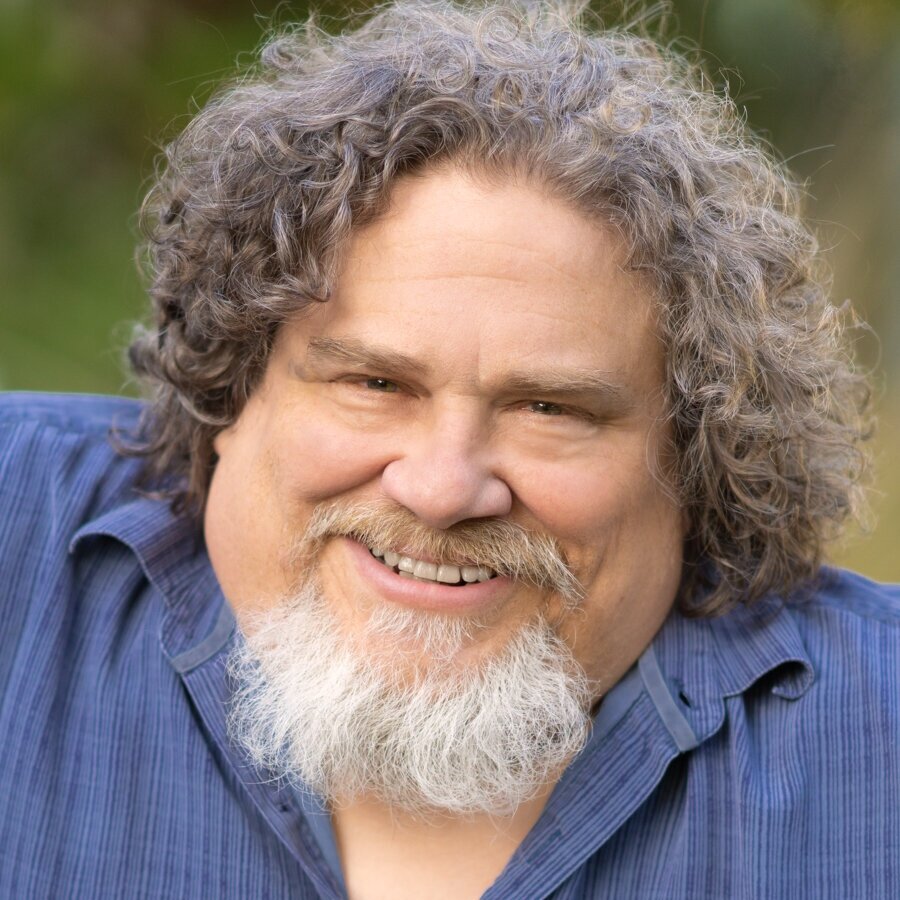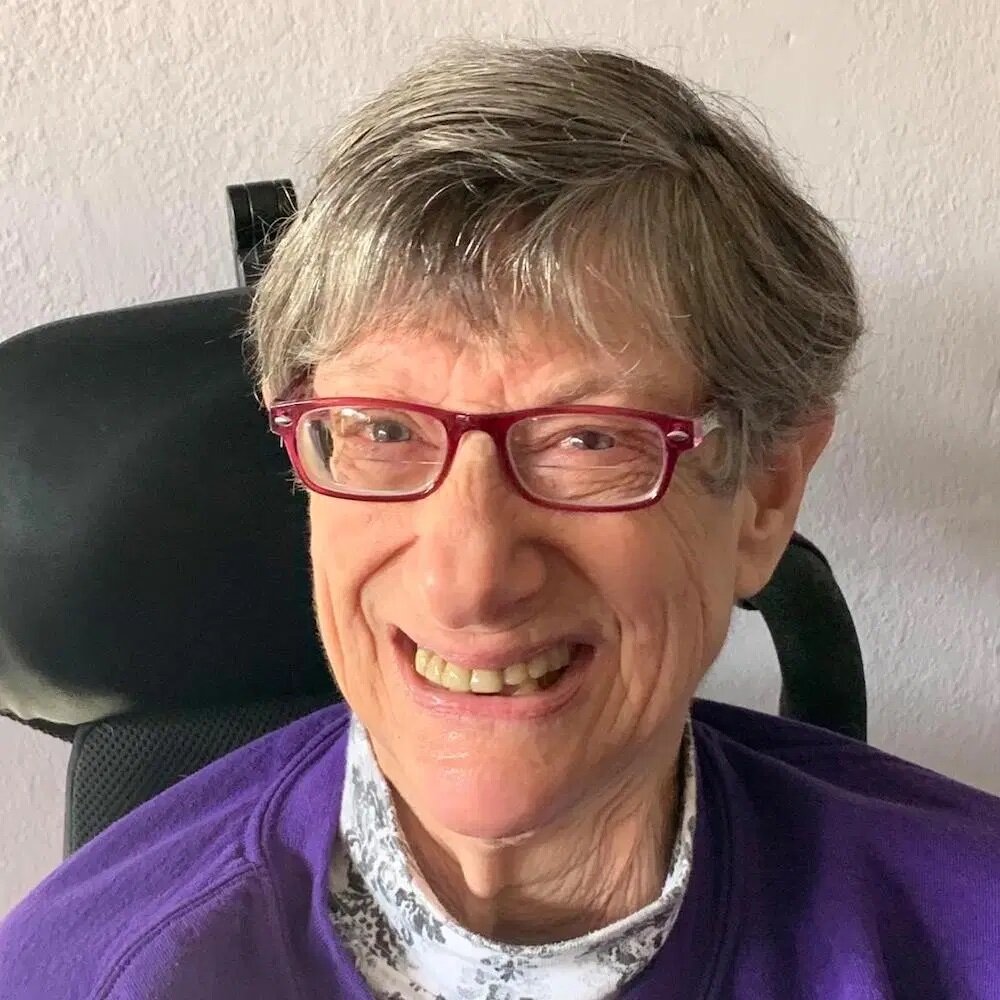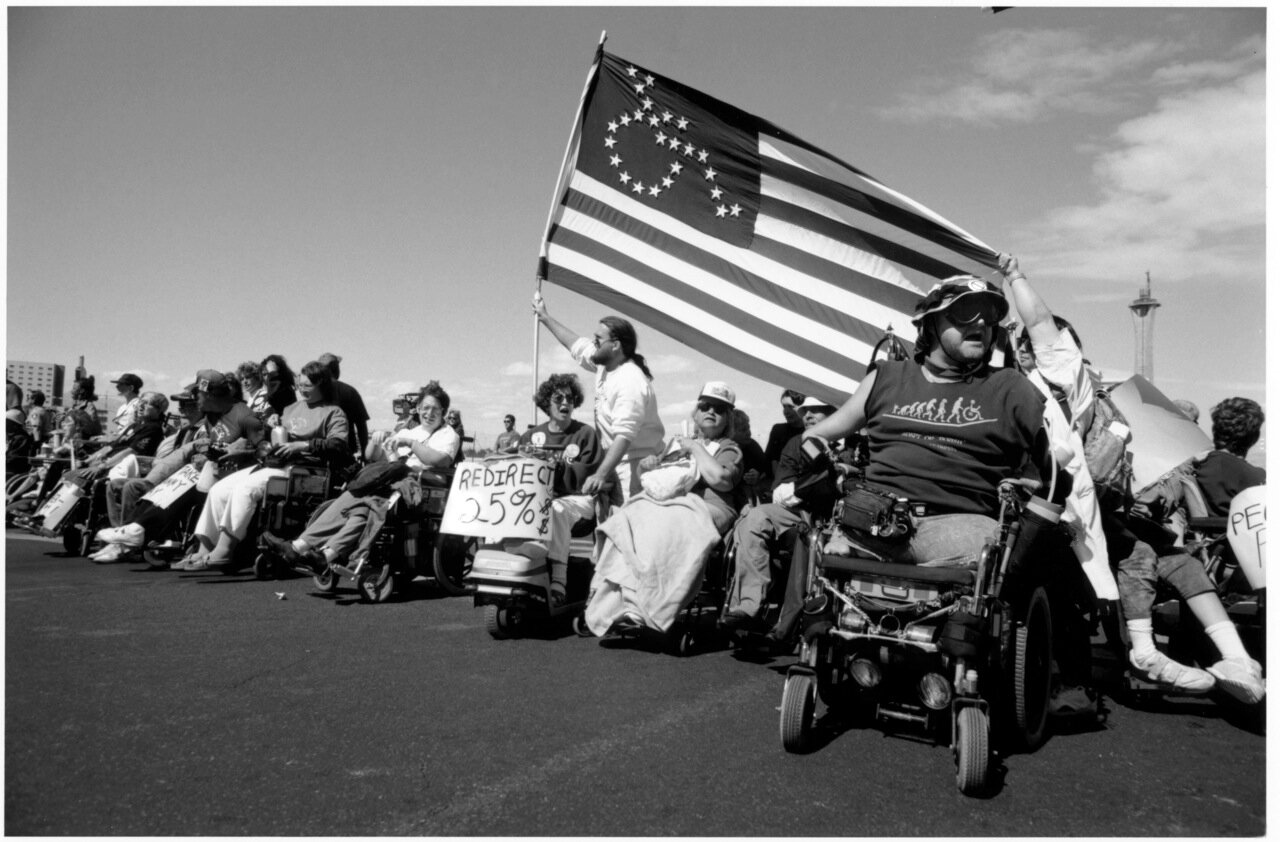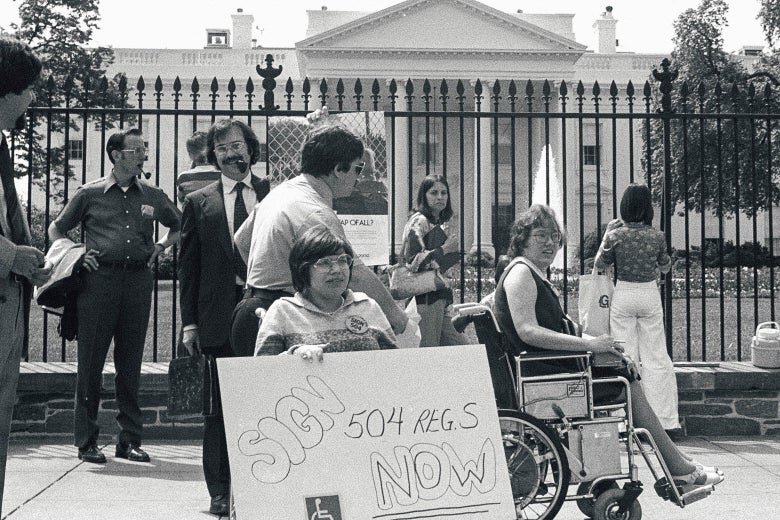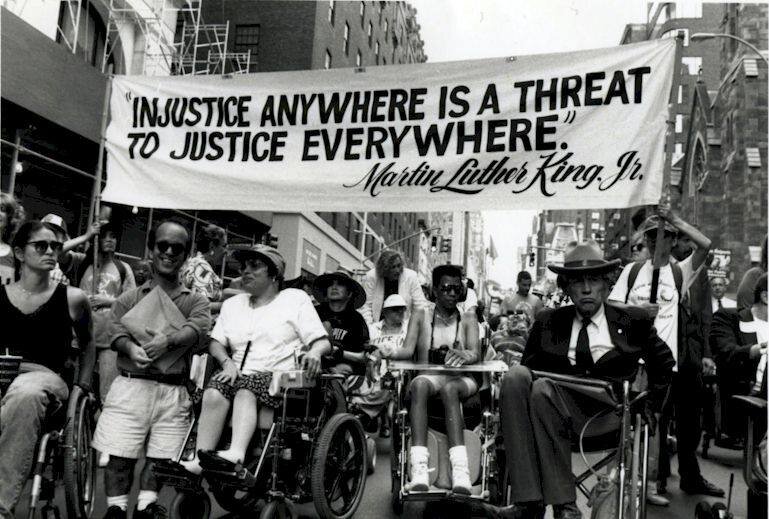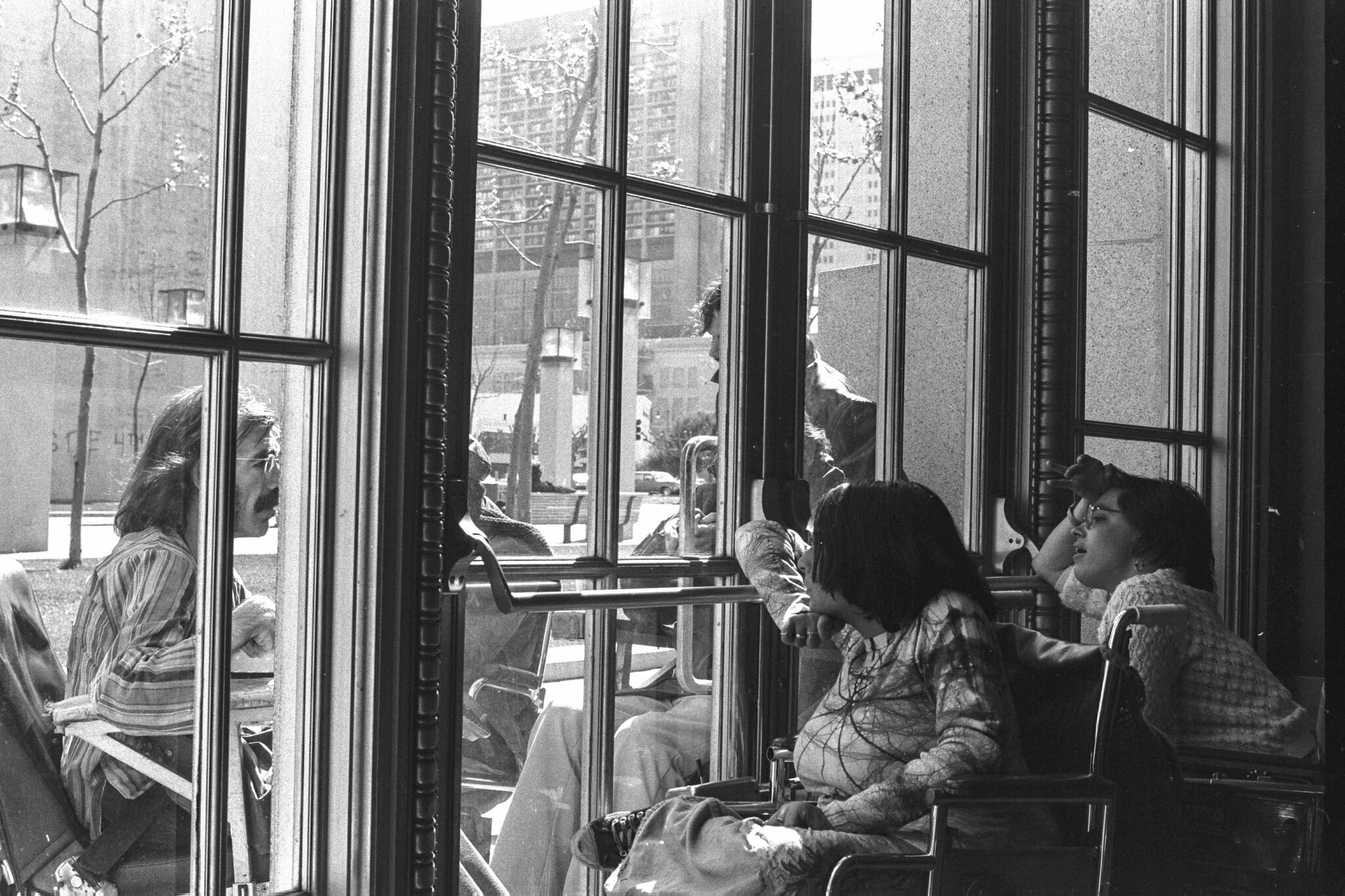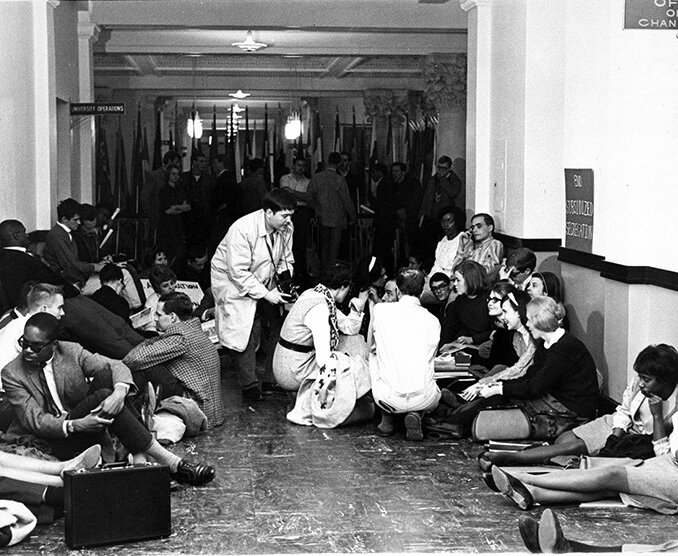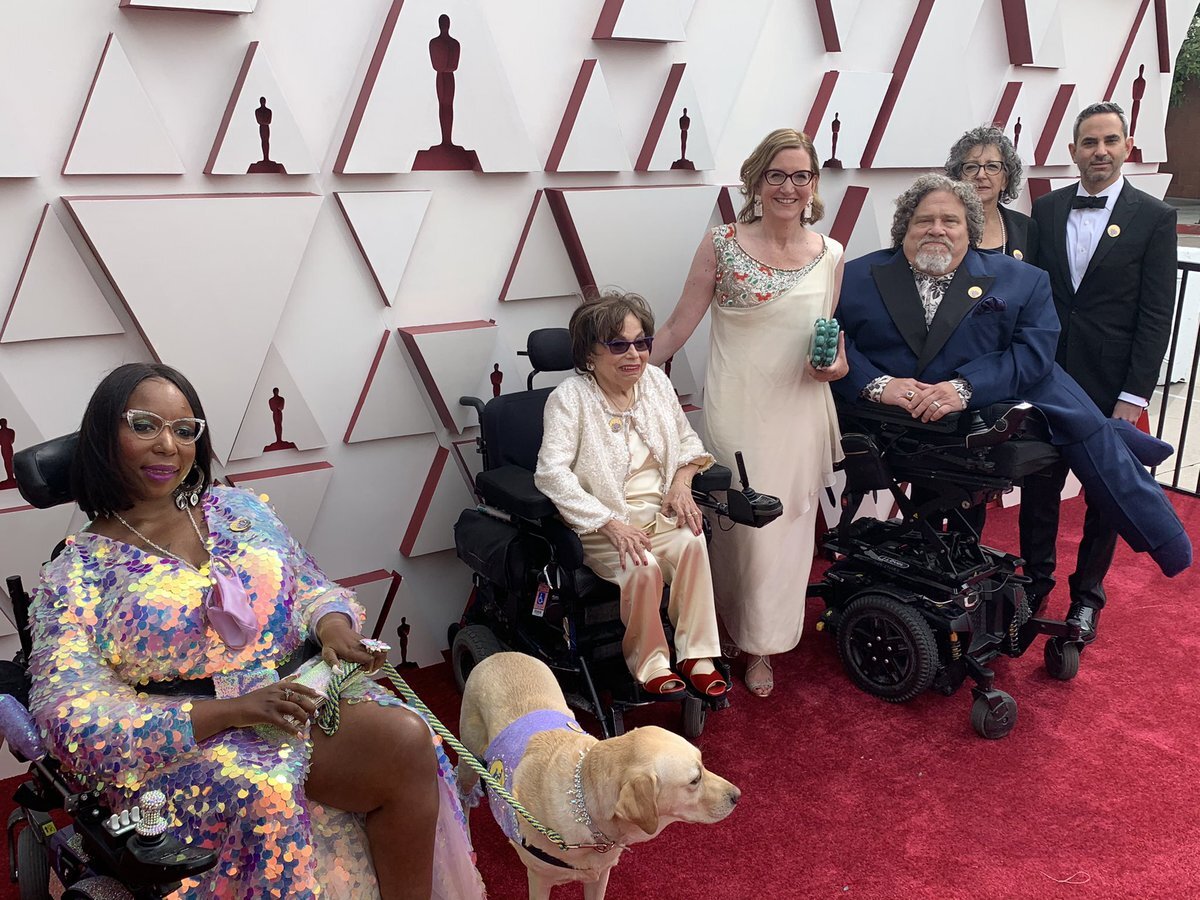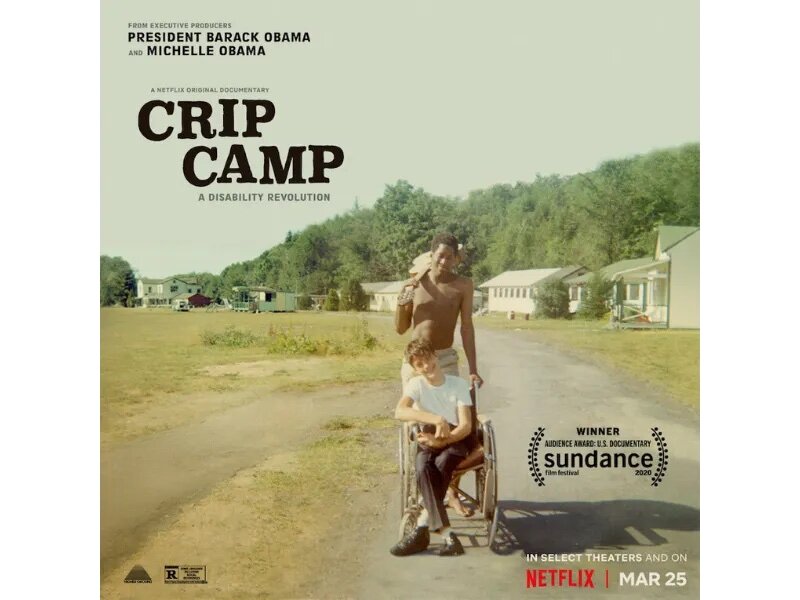Why Crip Camp Matters
I find it interesting that Crip Camp was nominated for Best Documentary at this year’s Academy Awards, considering it tells a story that is rarely, if ever, told in history class.
Crip Camp is a Netflix documentary that tells the story of the campers of Camp Jened who went on to become leaders in the disability rights movement (Click HERE to read my previous post about the documentary). Camp Jened was a summer camp in New York that was for people with disabilities. Camp Jened provided an environment for people with disabilities to be normal, to feel included, to be treated like a person rather than a burden. More importantly, it was a space for disabled people to come together, have conversations about the inaccessible world outside the camp’s perimeter, and propose potential solutions.
Once summer ended, as the documentary explains, many of the campers became activists within their communities. James LeBrecht, co-director of the documentary along with Nicole Newnham, helped form the Disabled Student Union at UC San Diego and serves on the board of the Disability Rights Education & Defense Fund. Denise Sherer Jacobson, one of the film’s consultants who came up with the title Crip Camp, wrote the memoir The Question of David: A Disabled Mother's Journey Through Adoption, Family, Life and has given presentations on disability-related issues both nationally and worldwide. After successfully suing New York City’s Board of Education for her license to teach, Judy Heumann went on to found Disabled in Action, serve as deputy director of the Center for Independent Living, co-founded the World Institute on Disability, and served in the Clinton and Obama administrations.
The documentary goes on to cover the 504 Sit-In of 1977 where, on April 5, Judy Heumann, Kitty Cone and approximately 150 other disability activists occupied a federal building in San Francisco in order to push the government to enforce Section 504 of The Rehabilitation Act of 1973. This was not the only protest to take place during this time, but it perhaps the most significant. For 26 days they sat in an inaccessible building, attending for each other, supported by the local Black Panther Party, refusing to give up or give in. Finally, after nationwide protests, congressional hearings, candle-light vigils, and rallies, on April 28, 1977 the regulations were signed into law. It is because of their perseverance over those 26 days that millions of disabled children, myself included, were able to go to school. It is because of their grit that no disabled person could be discriminated against by the federal government. It is because of their heroism that the Americans With Disabilities Act became law.
Yet, their story and the story of the disability rights movement is not written in any history textbook I’ve ever read.
Why?
Why is it that the Academy never had a ramp to the stage until 2021? Why did they cut away from Oscar winner Marlee Matlin while she was presenting an award? Why are characters with disabilities still portrayed by non-disabled actors? Because society chooses to remain ignorant. As a disabled American woman I am ashamed to say that I did not know my own history until this movie came out.
We need to do better. The disability rights movements, like many civil rights movements in the United States, is continuing. People with disabilities, the largest minority in the world, still live in an inaccessible world. Progress has been made, but there is clearly a long way to go. Judy Heumann, James LeBrecht, Denise Jacobson and so many others started this movement, ignited change, and shaped the laws of our country. But, if history is told by the winners, why is this movement left out of the lesson plans?
This film shows how far we’ve come, but it is clear that there is a long way to go. Congratulations to the cast and crew of Crip Camp on your historic nomination. Thank you for sharing an incredible story. Thank you for paving the way for people like me to be seen and heard. Thank you for teaching me how to advocate for myself and my community.
Thank you.
Crip Camp matters because we have to know and understand our past in order to move forward. Crip Camp matters because disability does not discriminate. Crip Camp matters because their work is not done. The world is still inaccessible, but it can change.
LEARN MORE:
Crip Camp | A Disability Revolution
DREDF: Section 504 Of The Rehabilitation Act
DREDF: Short History Of The 504 Sit In
DREDF: Judith Heumann
DREDF: James LeBrecht
RespectAbility: Denise Sherer Jacobson
Follow On Social Media:
Crip Camp:
Facebook: Crip Camp
Instagram: @cripcampfilm
Twitter: @CripCampFilm
Judith Heumann:
Facebook: The Heumann Perspective
Instagram: @theheumannperspective
Twitter: @judithheumann
James LeBrecht:
Twitter: @JimLeBrecht


